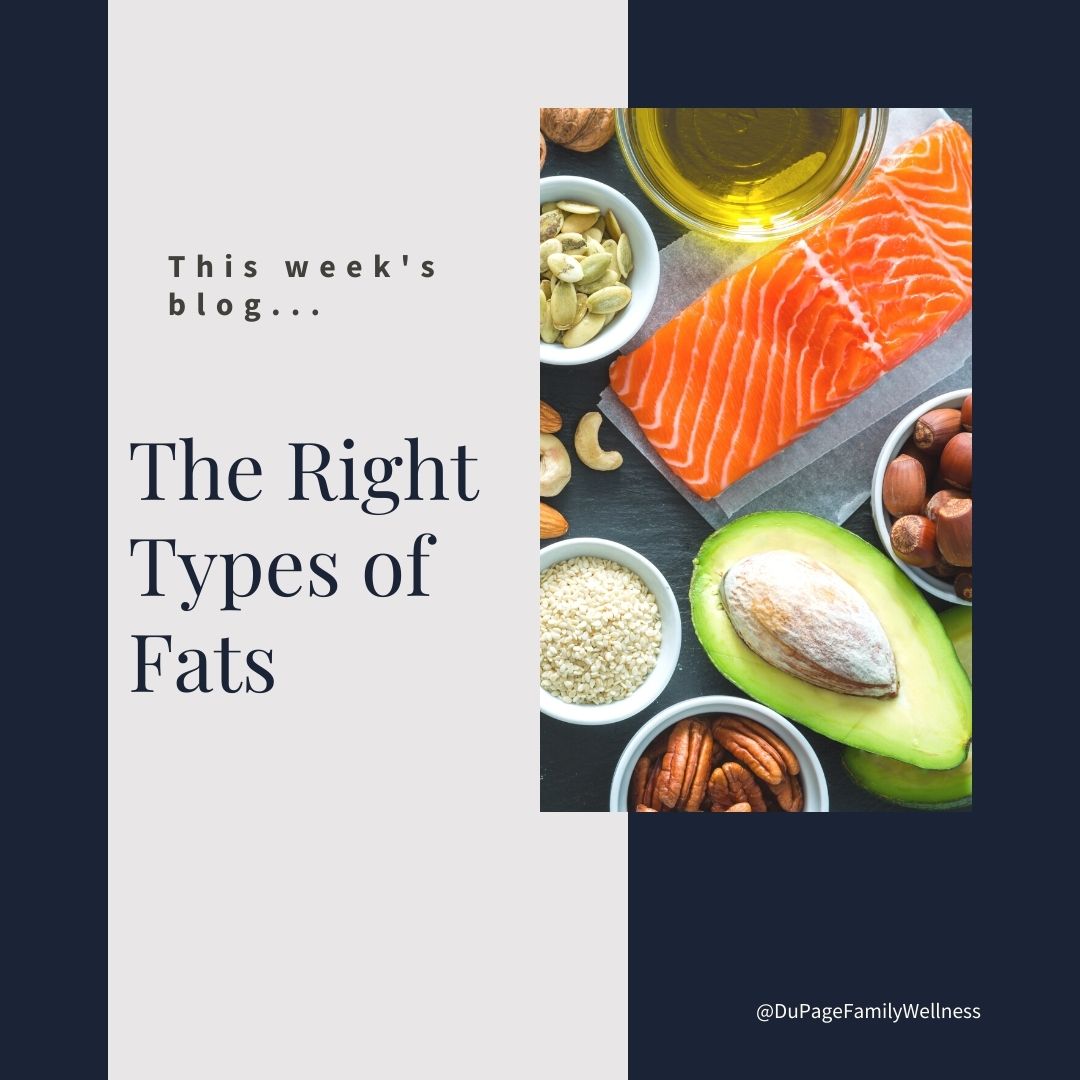 Are you afraid to incorporate fats into your diet? Do you believe that eating fat will make you fat? If so, you may eat a lot of chicken breast, steamed veggies, low-fat milk, low-fat yogurt, and salads with fat-free dressing.
Are you afraid to incorporate fats into your diet? Do you believe that eating fat will make you fat? If so, you may eat a lot of chicken breast, steamed veggies, low-fat milk, low-fat yogurt, and salads with fat-free dressing.
You may believe this due to the messages in the media. You’ve likely been taught that eating fat is bad for you, but this is simply not true! Regardless of what the media says, the research is clear.
Eating the right fats will make a HUGE impact on your body, but eating the RIGHT fats is the key!
Let’s explore what fats to eat and which to avoid.
We need HEALTHY fat
There are several essential fatty acids that your body cannot make on its own. If you don’t consume fat it may lead to inflammation, fatigue, poor memory function, heart issues, depression, dry skin, and other unpleasant symptoms.
Every cell in your body contains fat. One reason your body needs fat is to produce hormones. This is especially important for fertility, pregnant and postpartum patients, as well as those with Polycystic Ovary Syndrome (PCOS)!
Healthy fats help us feel full, maintain energy, stabilize blood sugar, and help with insulin resistance. Eating healthy fat (like olive oil) with your salad or veggies will also allow your body to absorb more of the nutrients from the vegetables.
Types of Fats
There is a BIG difference between good, natural, unprocessed, unrefined sources of fat and highly processed, refined fats.
Healthy fats should be incorporated into your diet every day. In some cases, it can be beneficial for these fats to make up well over HALF of the calories that a person consumes.
The processed and refined fats on the other hand, are considered “junk calories”. These unhealthy fats can be oxidized or rancid and are unrecognizable to our bodies. They actually contribute to inflammation which we know leads to all sorts of health problems.
Healthy Fats
These foods contain GOOD Fats. Enjoy eating these frequently without guilt!
- Avocados
- Olives
- Ghee
- Butter (I especially love Kerrygold)
- Plain yogurt (Full fat)
- Avocado oil
- Coconut oil
- Olive oil
- Nuts
- Fish (salmon, herring, anchovies, and sardines)
- Grass fed beef
- Dark meat from free range poultry
- Fats from animals (lard, beef tallow, duck fat, etc.)
- Eggs (especially from pastured chickens)
*It is important that the meat you eat comes from animals that were healthy and got to eat their natural diets while they were alive.
Unhealthy Fats
Unhealthy fats often hide in processed foods such as chips, crackers, and baked goods. Some of these fats are too high in omega 6 fatty acids, and they are all highly processed. An especially unhealthy type of fat is trans fat which we will talk about later.
Some examples of unhealthy fats include:
- Safflower oil
- Sunflower oil
- Soybean oil
- Canola oil
- Corn oil
- Vegetable oil
- Margarine
- Crisco
- Peanut oil
- Wheatgerm oil
- Cottonseed oil
- Grapeseed oil
- Rice Bran oil
- Anything hydrogenated or partially hydrogenated
As mentioned above, the worst type of fat is probably trans fats. These are man-made fats that are no longer classified at GRAS (Generally Recognized as Safe) by the FDA. When people eat trans fatty acids, various amounts of it are deposited in the body's tissues and impact the way the body functions.
For this reason, trans fats should be completely eliminated from the diet. They are commonly found in fried foods, doughnuts, baked goods, pie crusts, biscuits, frozen pizza, cookies, crackers, margarine, and other “butter-like” spreads.
Tips to Handle Fats
If you are someone who feels guilty about eating fats, consider adding some healthy fats to your diet. Enjoy butter, avocado, olive oil, and more fats from the “healthy” list above!
If you still have some of the “unhealthy” fats listed, you may want to consider switching these out with some of the healthier fats. Little changes, done consistently, can set you on a path to better health! To do this is is great to:
- Eat mostly whole and unprocessed foods (plants, animals, etc.).
- Limit meals at restaurants, as they typically use unhealthy oils. (If you do have to eat out often, choose a salad with olive oil and vinegar dressing.)
- Read labels carefully (many healthy looking oils are mixed with “blends” of other oils).
- Make your own salad dressing. It’s easy to do! (If you need some ideas, just ask. I’ll send you some recipes that I love.)
- Buy oils in a dark glass bottle to keep them from oxidizing. (When oil is stored in clear plastic bottles it will easily oxidize and become rancid.)
Still not convinced? Check out this article which explains why healthy fats do NOT cause high cholesterol, high blood pressure, or other related health conditions.
Let me know if you have questions. If you are interested in learning more about nutrition, I’d be happy to send you information about “Seven Weeks of Real Food.”
Dr. Jamie
Mark Hyman, MD. Eat Fat, Get Thin. Little, Brown and Company, 2016.
Mary Enig, PhD. Know Your Fats. Bethesda Press, 2013.

